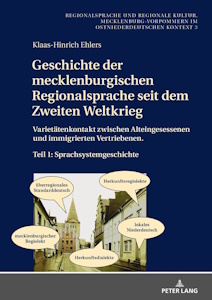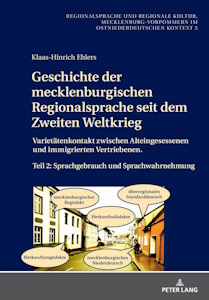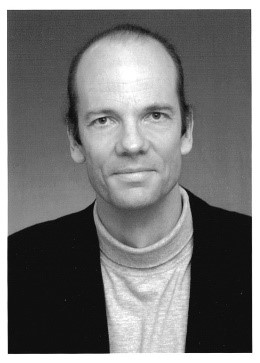Varietal contact between long-established residents and immigrant expellees. Part 1: History of the language system
‘The first volume of the Mecklenburg language history reconstructs the structural change of the regionally bound varieties of German in northern Mecklenburg. Using selected variables from phonetics/phonology, morphosyntax and lexis, the diachronic development of Low German and the Mecklenburg regional dialect is analysed in its contact linguistic interaction with the supra-regional standard. For the first time in modern regional language research, the study also includes the varieties of origin of the many displaced persons who came to the region after the Second World War. The corpus-based variation analyses show the linguistic consequences that the immigration of displaced persons had for the linguistic equalisation processes in the communication areas of Mecklenburg.
This book was awarded the Johannes Sass Prize 2018.’ - Peter Lang
Variety contact between long-established residents and immigrant expellees. Part 2: Language use and language perception
‘The first part of this language history traced the change in language structure in the Mecklenburg variety structure. The second part sheds additional light on what 90 contemporary witnesses reported about the change in their language use and their language attitudes and what changes they observed in their social and linguistic environment. The focus of this oral language history is again on the structure of competing contact varieties that clashed in Mecklenburg after the Second World War: Low German, the varieties of origin of the immigrant displaced persons and (regional) High German. In each case, developments in language acquisition, language competence, language pragmatics and language perception are reconstructed.’ - Peter Lang



